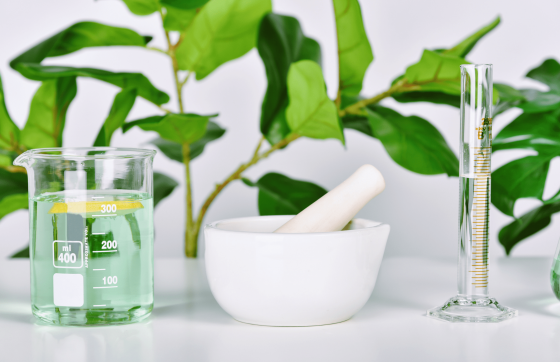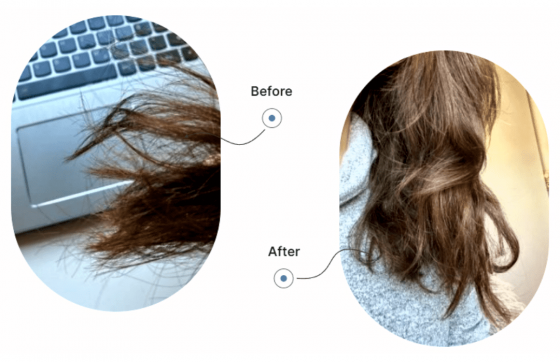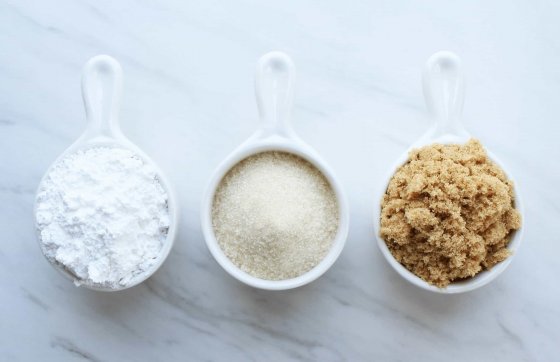
Top 5 Hair Oils That Are Suitable For The Scalp [2023]
![Top 5 Hair Oils That Are Suitable For The Scalp [2023]](https://blog.hairqare.co/wp-content/uploads/cache/2022/05/5-top-oil-feature-email-1-680x432.jpg)
Navigating the world of hair oils can be pretty daunting. Not only because there are so many oils out there, but also because they all have different properties and therefore need to be used in different ways.
For example, some oils are better used on your strands and not your scalp. Some oils are better used on both your strands and your scalp. Some oils need to be diluted before being applied to your scalp… and on and on and on.
Although steering yourself through all these different rules can be tricky, it is necessary if you want to get the best results possible. But don’t worry, we’re here to help you!

How do we determine which oils are suitable for the scalp?
We have chosen oils that have low Comedogenic Ratings (0-5) and low Irritation Ratings (0-5), which means you will be less likely to experience any clogged pores or irritation from using these oils on your scalp.
You see, oils like Coconut Oil or Linseed Oil tend to have a high comedogenic rating, meaning that if you use them on your scalp you have a higher chance of experiencing scalp pimples or clogged follicles.
Other oils, such as Jojoba Oil and Hazelnut Oil can be quite irritating, which can lead to itchiness and inflammation when used on the scalp. Despite this, all the oils mentioned so far can be used on the hair strands, it is just a good idea to keep them away from your scalp, especially if it is particularly sensitive.
Fortunately, there are oils out there that don’t cause irritation or clogged follicles, which is exactly what this blog post is all about! So, without further ado, let’s get into it!

Squalane
- Comedogenic Rating: 0-1
- Irritation Rating: Unknown
Product Recommendations
- Brand Site:
The Ordinary 100% Squalane - UK Amazon:
The Ordinary 100% Squalane - US Amazon:
The Ordinary 100% Squalane

First up we have Squalane, which is already a super popular ingredient in the skincare world, so you may not be surprised to hear that it can also work well within your hair routine too.
However, I am sure when you have searched up ‘Squalane’, you have probably come across results that talk about ‘Squalene’ as well. Perhaps you have thought to yourself, “What is that? Are they the same?” Effectively, Squalene is a regular part of your human sebum that helps to maintain a healthy flake-free scalp.

Actually, it has been found that people suffering from seborrheic dermatitis are deficient in fatty acids and squalene which may be contributing to their scalp issues.
As Squalane is the more stable form of Squalene, it is an incredibly useful ingredient to use in your hair routine. Although technically it is not an oil, it certainly makes a great alternative as the consistency and benefits are pretty similar!
As Squalane is very similar to your skin’s natural oils, it provides just the right amount of moisturization for the skin, leaving your scalp hydrated and supple. Also, as far as oils go, Squalane is actually super lightweight, so it is less likely to weigh your hair down and make it look heavy or greasy.

Basil Oil
- Comedogenic Rating:
- Irritation Rating: 0
Product Recommendations
- UK Brand Site:
Naissance Basil Essential Oil - UK Amazon:
Naissance Basil Essential Oil

- US Brand Site:
Handcraft Basil Essential Oil - US Amazon:
Handcraft Basil Essential Oil

Second, on our list is Basil Oil! When it comes to stimulating hair growth, Basil Oil is absolutely amazing! Essentially, when the oil is massaged into the scalp, it helps to boost blood flow to the scalp which nourishes the hair follicles and promotes hair growth.
So, if you are looking for an oil to add to your routine that will help improve your hair growth, Basil Oil may just be the perfect oil for you!
N.B. As Basil Oil is an essential oil, it is best to blend a couple of drops in another carrier oil of your choice, to dilute it before applying it directly to your skin. This is because essential oils are often much more potent than carrier oils and can be irritating in high amounts.

Meadowfoam Seed Oil
- Comedogenic Rating: 0
- Irritation Rating: 1
Product Recommendations
- UK Brand Site:
Aromantic Meadowfoam Seed Oil - UK Amazon:
Aromantic Meadowfoam Seed Oil

- US Brand Site:
Plant Therapy Meadowfoam Seed Oil - US Amazon:
Plant Therapy Meadowfoam Seed Oil

Next up is Meadowfoam Seed Oil, which is one of the lesser-known oils on the market, even though it has some amazing properties. It has been said that Meadowfoam Seed Oil has the ability to provide moisturizing properties without leaving the same greasy residue that other oils can cause.
Although, this could also depend on many factors such as how much you use and how naturally oily your hair is. Nevertheless, it certainly isn’t as heavy as other oils which can really weigh the hair down and give it a greasy look. As it is a sealing oil, it helps to coat the hair strands and lock the moisture preventing dryness and reducing tangles.

Almond Oil
- Comedogenic Rating: 2
- Irritation Rating: 1
Product Recommendations
- UK Brand Site:
Naissance Almond Oil - UK Amazon:
Naissance Almond Oil

- US Brand Site:
Pura D’Or Sweet Almond Oil - US Amazon:
Pura D’Or Sweet Almond Oil

Now we come to talk about Almond Oil which is another oil that is highly moisturizing. Therefore, it helps to nourish and soften the hair strands so they are more manageable. Almond oil is also high in Vitamin E which is a powerful antioxidant.
This can help fight any free radicals that get onto your scalp from environmental hazards, like pollution. Again, using Almond Oil in a scalp massage can help to promote scalp circulation and nourish the hair follicles for improved hair growth.

Blackcurrant Seed Oil
- Comedogenic Rating: 1
- Irritation Rating: 2
Product Recommendations
- UK Brand Site:
Makers Ingredients Blackcurrant Seed Oil - UK Amazon:
Ol’Vita Blackcurrant Seed Oil

- US Brand:
LOOV Organic - US Amazon:
Botanical Beauty

Lastly, we come to Blackcurrant Seed Oil. Like Basil Oil, Blackcurrant Oil has also been found to have some hair growth boosting properties. You see, it is packed with antioxidants, vitamin C and essential fatty acids, all of which are super beneficial to the scalp.

It has also been found to have anti-inflammatory properties, anti-allergen properties, and anti-dermatitis properties, all of which make it suitable for the scalp.
And there we have it! Those are our Top 5 Hair Oils That Are Suitable for Your Scalp! We hope this information has helped you understand that you can’t just go ahead and use any oil on your scalp and expect good results.
There is actually a lot that goes into identifying which oils work better than others, to ensure bad results are avoided as much as possible!
Next Up: Penetrating vs. Sealing Oils- Choose the Right Oils →
N.B. It is important to note that these recommendations are based on the comedogenic and irritation ratings for these oils and do not take into account different scalp conditions, personal allergies, or individual sensitivities. Therefore, if you do decide to try any of the products mentioned above, be sure to do a patch test on your arm before using the product on your scalp. If you do experience any adverse reactions, stop using the product. If the adverse reactions continue, seek medical advice.

Sources:
Journal of the American College of Toxicology (1990) Final Report on the Safety Assessment of Squalane and Squalene, 2022 <https://journals.sagepub.com/doi/abs/10.3109/10915818209013146>
Belser G. An Extract from a Hairy Root Culture from Basil to Treat Hair Loss <http://tst.pg2.at/abstracts/data/full_papers/full_paper_20.pdf>
Carpenter E. L. (2018) Photoprotective Properties of Isothiocyanate and Nitrile Glucosinolate Derivatives From Meadowfoam (Limnanthes alba) Against UVB Irradiation in Human Skin Equivalent, Frontiers in Pharmacology, 2022 <https://www.frontiersin.org/articles/10.3389/fphar.2018.00477/full>
American College of Toxicology (1983) Final Report on the Safety Assessment of Sweet Almond Oil and Almond Meal, Mary Ann Liebert Inc. Publishers, 2022 <https://journals.sagepub.com/doi/pdf/10.3109/10915818309140716>
Burnett C. L. (2017) Safety Assessment of Plant-Derived Fatty Acid Oils, 2022 <Ribes nigrum (blackcurrant) seed oil>







